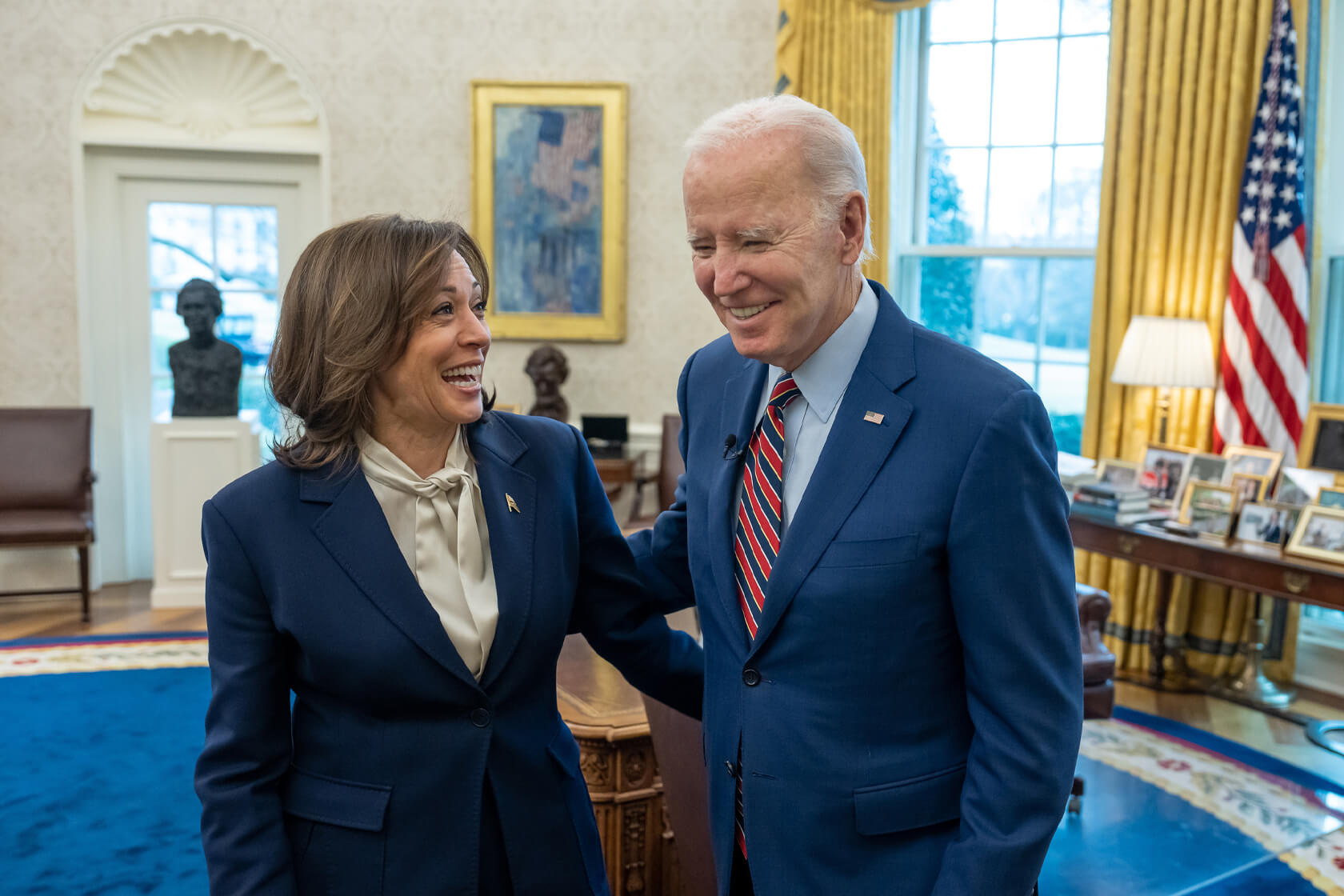Potential Harris presidency could turn the screws on Israel
Vice President Kamala Harris reportedly pushed the Biden administration to show more sympathy for Gazans and to get tough with Israel.

Vice President Kamala Harris, now the frontrunner for the Democratic presidential nomination, will likely continue Biden’s foreign policy on most issues, but might diverge when it comes to Israel, NBC News reported on Monday.
While Harris initially expressed support for Israel in its war with Hamas following the terror group’s invasion on Oct. 7, she turned increasingly critical as the war dragged on.
“We are not going to create any conditions on the support that we are giving Israel to defend itself,” she told a conference in Britain on Nov. 2, less than a month after the assault.
A month later on Dec. 2, Harris said at an environmental conference in Dubai that “too many innocent Palestinians have been killed. Frankly, the scale of civilian suffering and the images and videos coming from Gaza are devastating.”
“This was the rhetoric that Biden would shortly adopt,” noted conservative columnist Daniel Greenfield.
Politico reported in December that Harris had told the administration “to show more concern publicly for the humanitarian damage in Gaza.”
“One person close to the vice president’s office said she believes the United States should be ‘tougher’ on Israeli Prime Minister Benjamin Netanyahu,” the report said.
On March 3, in Selma, Alabama to commemorate the 1965 civil rights march, Harris dedicated the first five minutes of her speech to expressing sympathy for Gazans, holding Israel responsible for their condition.
“Before I begin today, I must address the humanitarian crisis in Gaza. What we are seeing every day in Gaza is devastating,” she said.
“People in Gaza are starving. The conditions are inhumane,” she said. (Reports of a full-scale famine turned out to be untrue. In June, the Integrated Food Security Phase Classification admitted its dire predictions had been incorrect.)
“The Israeli government must do more to significantly increase the flow of aid … No excuses. They must open new border crossings. They must not impose any unnecessary restrictions on the delivery of aid,” she said.
While she also said that the Hamas threat to Israel must be eliminated and the hostages returned, those statements seemed perfunctory in comparison.
“Her forceful delivery went viral, with thousands of people posting her comments online and a number of media outlets writing about them,” NBC News reported.
The first draft may have been even harsher, as NBC News reported that officials at the National Security Council had toned it down. Harris’s communications director called the report “inaccurate.”
Later in March, Harris opposed Israel’s plan to invade Rafah, the last stronghold of Hamas in the southern Gaza Strip, although not doing so would have enabled the terror group to survive.
“We have been clear in multiple conversations and in every way that any major military operation in Rafah would be a huge mistake,” she told ABC News.
“Let me tell you something. I have studied the maps. There’s nowhere for those folks to go, and we’re looking at about 1.5 million people in Rafah who are there because they were told to go there, most of them,” she said.
Harris’s assessment turned out to be wrong, as 900,000 Gazans evacuated Rafah within one week from the time Israel issued its first evacuation order for the city on May 6.
“[C]rowded tent camps in the central and northwest regions of the city grew sparse within days of the order,” the Associated Press reported in late May, after analyzing satellite photos.
In July, she expressed sympathy for anti-Israel campus protesters, telling left-wing periodical The Nation that students were “showing exactly what the human emotion should be.”
The Washington Post reported in March that Harris had warned White House advisers that young voters see the Israeli-Arab conflict differently than older ones.
Also, immediately after the Oct. 7 attack, Harris lobbied the president to include a line about Islamophobia in his speech promising unconditional support for Israel, the Post reported.
That decision recalls another Harris made as California attorney general to convene interfaith, community and law enforcement leaders to condemn the rise of Islamophobia after a husband-and-wife Islamist terror team killed 14 and wounded 22 others at a Christmas party in San Bernardino in 2015.
“She is on the fringe of the progressive wing of the party, which sympathizes more with the Palestinian cause,” David Friedman, former U.S. Ambassador to Israel under Donald Trump, told The Jerusalem Post on Sunday, predicting that U.S. Jewish voters would move to the Republican Party due to Harris’s rise.
Prominent pro-Israel lawmakers, however, defended Harris’s record on Israel and antisemitism, telling The Jewish Insider that she is a “staunch ally” of Jewish people.
Rep. Jared Moskowitz (D-Fla.) told the Insider that “people were serving different roles,” in the administration, suggesting that Harris was reaching out to the Democratic Party’s progressive base, and that she would shift to a more centrist position as president.
“Soon-to-be President Harris [will] support Israel, our No. 1 ally in the region,” he said.
However, Friedman insisted that Harris didn’t pass the “kishkes test.”
“Combine that with the Republican Convention being historically pro-Israel and the Democratic Convention likely to be pro-Palestine, and you have a significant shift,” he added.
No comments:
Post a Comment